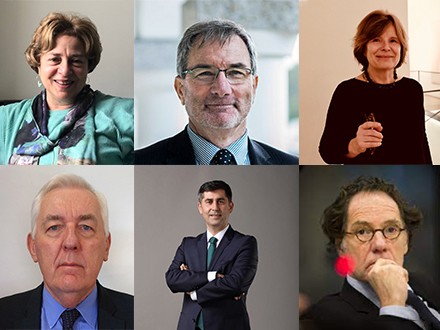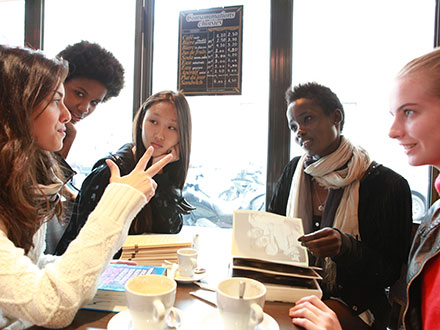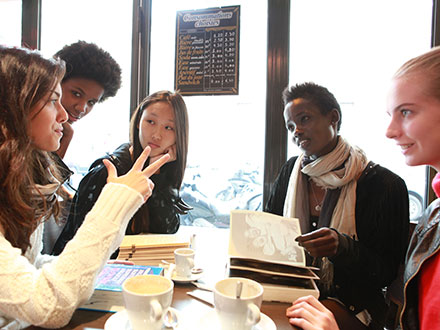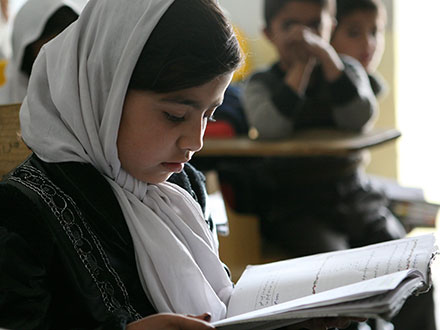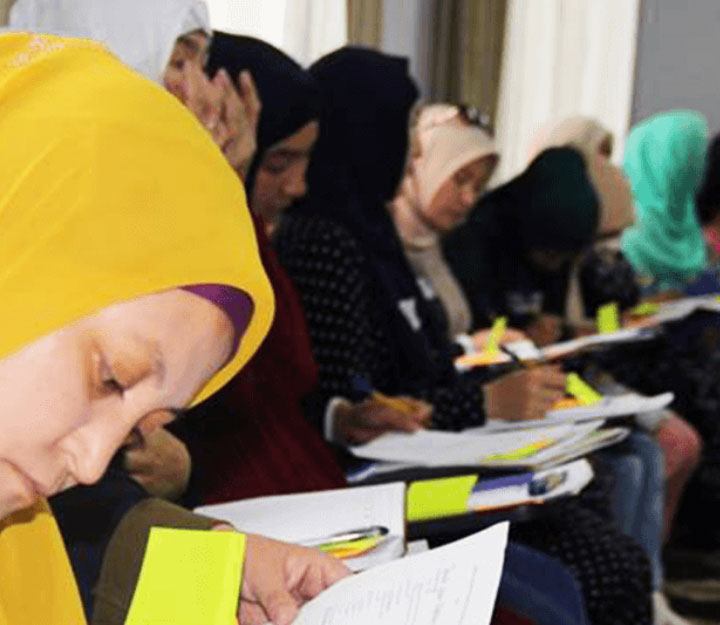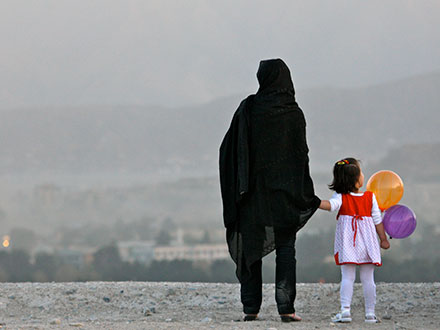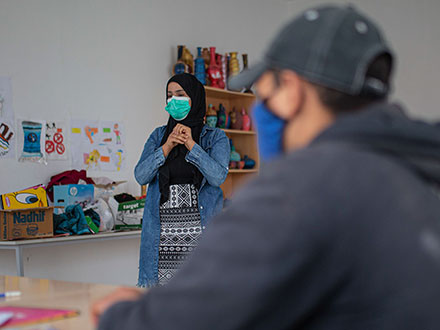
In our newest article on the different projects of the STRIVE Global program, we will present the National Centre for Culture and Arts (NCCA) of the King Hussein Foundation from Jordan and its project “Improving social and emotional skills through arts in Jordan”. The project started its implementation in June 2019 and came to an end in November 2020.
While Jordan in recent years has not suffered from terrorist attacks as much as most of its neighboring countries, it hasn’t been completely spared either. The terrorist attacks in Salt, at Karak Castle, or at the Baqaa refugee camp have served as reminders that the danger persists and that concerns about large-scale attacks possibly destabilizing the kingdom need to be taken seriously.
Furthermore, Jordan is second, behind Tunisia, in terms of countries with the highest number of citizens who traveled to join Daesh, with over 4,000 citizens traveling to Syria and Iraq. At its peak, Daesh maintained extensive radicalization networks in the country. Research from 2010 to 2017 shows that radicalization efforts in the country touch upon fertile ground, with a steady rate of 7% of Jordanians endorsing violent extremist groups such as Daesh or Al-Qaeda[1].
To address these issues, Jordan has upped its efforts against terrorism and radicalization, but “hard” solutions on their own are often not enough to counter the problem. Violent extremist groups often exploit the vulnerabilities and grievances of young people in Jordan by addressing their frustrations on high unemployment and social grievances, and by taking advantage of the conservative family structure which often turns young people looking for role models to the internet and mosques.
Furthermore, the slow death of cultural opportunities for youth, particularly in the hotspots of Salt and Zarqa, and the absence of arts, sports and cultural expression constitute favorable conditions for radicalization.
To combat these issues, an Anti-Extremism unit was founded at the Ministry of Culture to contribute to the fight against radicalization. As a first step, a youth art program called “Talaqee” was launched that consisted of visual arts and theater activities targeting the youth in Mafraq province. Jordan State Television and local private TV stations have also become actively engaged in producing TV programs that promote moderation and provide counter-narratives to violent extremism. In line with these developments, the NCCA initiated its own project through which it developed an interactive theater play called “Bus Stop”.
Interactive Theater Plays
The NCCA uses interactive theater performances to address social issues for over three decades and has over time established extensive relationships with both public institutions and NGOs in the country. Interactive theaters follow a unique methodology which consists of developing a participatory drama that engages the audience in the subject matter through active interaction with the actors and the help of a facilitator who acts as a bridge between the audience and the actors and stimulates spontaneous reactions and discussions on the play.
The plays need to be designed and implemented in a way that engages the spectator’s feelings, so that they participate in a discussion on the topic and develop a stance in favor or against the program’s message. Apart from discussions, other forms of audience interaction such as depictions, simulations, stage pictures and role-playing are also used.
To best allow for a discussion to take place, the play needs to offer an open-ended structure, where the actors will improvise the outcome depending on the interaction with the audience. This active interaction between the actors who stay in their role, the facilitator and the audience yields the power to leave a long lasting impression and is both educational and fun for the audience.
Finally, it also ignites people’s imagination and helps them develop a new understanding of the presented concepts and narratives. This method has proven highly successful in initiating dialogue, stimulating discussion, spreading awareness, and changing attitudes and perceptions.
By targeting school and university students throughout their projects, the NCCA aims at widening the mind-sets of Jordan youth who are often overwhelmed with prescribed cultural and social expectations of who they are and how they should behave. The idea is that if you let students engage with new narratives, they will develop their own points of view and start trusting their inner voice when it comes to deciding what living a fulfilling life means to them.
The theater setting provides a safe and stimulating environment where youth get the opportunity to reflect on these questions. As a result, the students will increase their level of intrinsic motivation, develop a stronger sense of identity and self-worth, and improve their capacity to empathize and work effectively with others.

For our project, the NCCA developed a new interactive theater play tackling the topic of preventing and combatting violent extremism in all its forms. The play is called “Bus Stop” and aims at promoting good citizenship and on how to take important life decisions.
The name of the play موقف/maʊkɪf/ is a homonym that means both “stop”, as in a bus stop, and “stance”, as in taking a stance in life. Right at the beginning of the play, four characters meet at a bus stop. The audience is then asked who the four people are, and where they are headed in life.
Throughout the play, the four characters with vastly different stories, who have all found themselves in a difficult situation, discuss their troubles and seek help from the others, as well as from the audience.

The first character, Kamal, is a street vendor who goes against the laws of the municipality. He is very poor and in large debt. A stranger offers him money in return for smuggling a document to the border.
The second character, Rajaa, is an ambitious teenager who wants to become an astronaut. Her parents and brother don’t like the idea and stop her from following her dream. A neighbor offers to help her leave the country in return for an unconditional favor.
The third character, Amjad, is a gaming addict who never leaves his room and has no friends. His parents don’t give him any attention and he can’t communicate with them. In an online chat room, violent extremists try to persuade him to join their group instead of wasting his time gaming.

By joining them, they promise him that he will fight for a good cause and will find meaning, while also receiving rewards and appreciation.
The last character, Hind, is a young teenager with a big following on social media. She is blackmailed by someone she knows to help him recruit her female followers for shady activities and threatens Hind to expose her private photos and messages if she doesn’t agree.
Throughout the development of the story, the actors ask the audience how they should resolve their problems, taking a different direction every time, it is presented. The four main characters sit on the bench for the duration of the play and stay in their roles, while the facilitator interacts with the audience by asking questions on the scenes and facilitates the interaction with the characters. You can find the full play on YouTube.
Touring of the play in Jordan
After the completion of the script and rehearsals, NCCA held the first performance at its premises for various stakeholders from the Jordanian Senate, the Community Peace Centre of Jordan, the Jordan Media Institute, and the Jordanian Interfaith Foundation. During the presentation, the stakeholders vividly interacted with the actors and provided input on the play’s content, the implementation and the key messages addressed. With their help, the play was refined and finalized to perform in all six governates of the country. Stakeholders also stressed the importance of actors from different fields working together to tackle the problem.
“The family, the school, NGOs and community leaders must work all together towards accomplishing a comprehensive effort in CVE. Media can do more to highlight the negative impact of violent extremism. Sermons at mosques during Friday prayer should not be aggressive and promote the true Islamic spirit.”
After the initial performance in front of the stakeholders, the project team toured around Jordan and performed 32 plays in high schools, universities and community centers all over the country, reaching over 2,200 students (of which 46% female) aged 15 to 22, and 500 community members. The interactive theater performances were a great success and received very well in all schools and universities. The attendees showed an excellent engagement level of over 90%, and a rise in their capacities of identifying signs and messages of violent extremism was perceived. This once again proved that interactive theaters yield a great power in gathering the attention of the audience and in provoking an active interaction and discussion on the play’s topic. As part of the discussion, students also shared their views on the importance of positive communication with parents and their important role of being pillars to success, providing safety, and helping to solve problems. Students were also asked who they should inform, other than their parents, if they got into any trouble concerning violent extremist organizations. In the following discussion, the facilitator always made sure to mention the Cyber Crimes Unit, the Family & Childhood protection Society and the Peace Community Centre if they were not brought up by the students and explained how they could be contacted and where their responsibilities lie. By introducing these organizations, further awareness on contact points and helplines was raised.
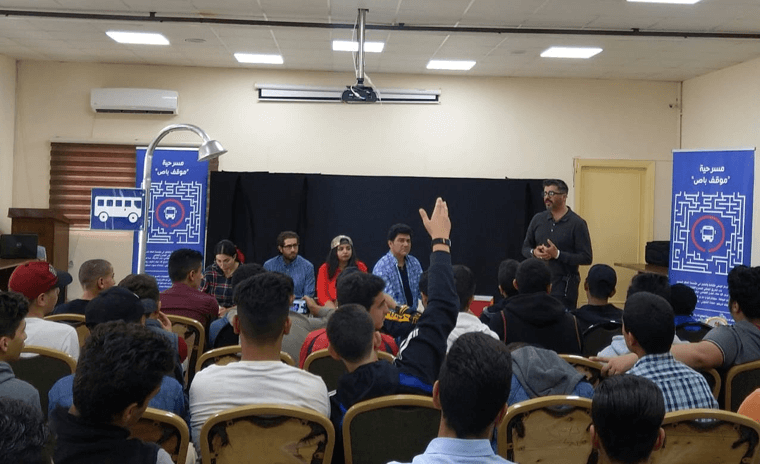
The performance really affected us and we saw characters that we know exist in real life. It is very important that we know how to deal with these characters in real life. I advise everyone to openly communicate and make decisions wisely. I also highly advise parents to allow their sons and daughters to express themselves, their opinions and their feelings and not to neglect them.
University Student Irbid
At the end of the project, two radio interviews with Al-Balad and Amman FM were conducted in addition to one TV interview with AlMamlaka TV. These interviews served to present the project’s objectives, target group and beneficiaries, and activities to a larger audience in the country. In these broadcasts, excerpts from a school performance in Amman, as well as interviews with actors and students were also presented. The broadcasts reached over 50,000 people in the country and greatly helped in disseminating the project. At the end of the project, the play was also successfully filmed and edited. The movie was then uploaded on Facebook and reached an additional 15,000 people who watched it online, further increasing the civil society’s awareness on the topics of the project.
Conclusion
The project was successful in achieving its objectives and gaining the support of local and state authorities. Through the theater performances, it managed to follow a whole-of-society approach and tackle violent extremism by targeting various demographics, socio-economic backgrounds and age groups. The NCCA was able to develop strong relationships with school and university students, communities, community-based organizations and public sector institutions in raising awareness and challenging hateful extremism using interactive theater as a means to highlight, and demand action on the root causes of violent extremism. With the success of this project, interactive theater performances to tackle violent extremism and reach a diverse set of community members have proved to be a viable option worth further exploration.
We hope you enjoyed the read and look forward to presenting you a new project next month!
About NCAA

The National Centre for Culture & Arts (NCCA) of the King Hussein Foundation, is recognized for its pioneering role in introducing drama into mainstream education and for the enhancement of theatre and dance movements in Jordan. Founded in 1987, the NCCA’s programs serve as a national resource and a regional and international model for incorporating performing arts in all levels of educations for the academic, cultural and personal development of children and youth. Its programs aim to promote creativity and humanitarian values, enhance cultural enrichment, and bring about social change by utilizing the performing arts nationally and internationally. The NCCA has over the years also established an extensive network with local, regional, and international organizations, and is actively engaged in promoting cross-cultural understanding by conducting comprehensive exchange programs and co-productions in theatre and dance.
About STRIVE Global In Focus
The STRIVE Global: In Focus series will present a series of articles presenting the overarching STRIVE Global program, as well as insights and outcomes from its projects. The STRIVE Global program aims at building the capacity of state and non-state actors to effectively challenge radicalization and recruitment to terrorism while continuing to respect human rights and international law. Throughout its implementation, the program has supported 36 different civil society organizations in the Western Balkans, Central Asia, the South Caucasus, the MENA region, and Turkey.
In this series, we will present one of these organizations and its respective project each month. The series serves as a contribution to the conversation around diverse CVE solutions and pushes forward the quest for more research and innovation in the field. The authors of the articles are the STRIVE Global team and the opinions expressed in these articles are their own and not representative of Hedayah.



